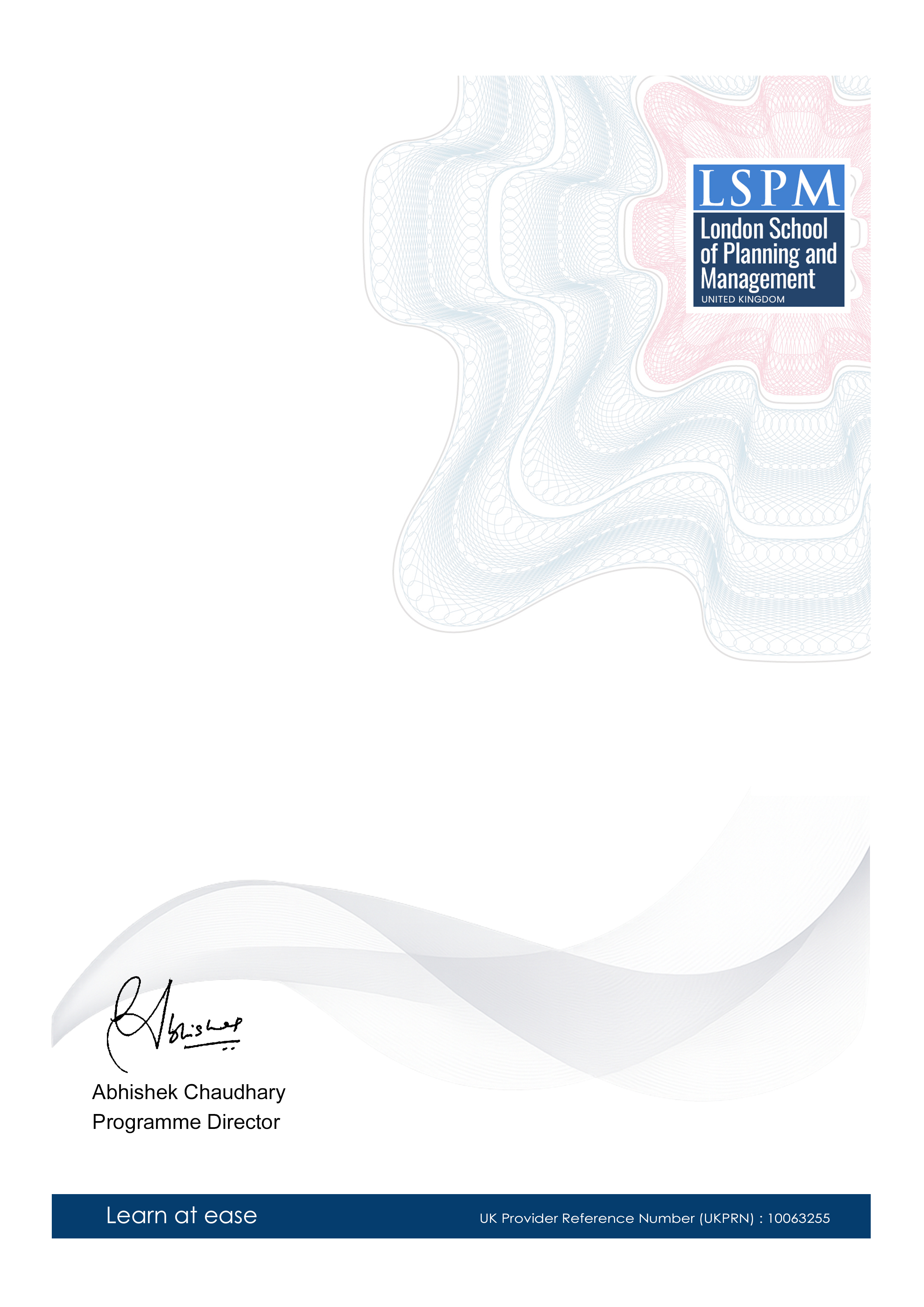Career Advancement Programme in Fisheries Surveillance
-- viewing nowCareer Advancement Programme in Fisheries Surveillance is designed to enhance skills in monitoring and managing aquatic resources. Targeted at fisheries professionals, this programme offers cutting-edge training in surveillance techniques, data analysis, and policy implementation.
5,916+
Students enrolled
GBP £ 149
GBP £ 215
Save 44% with our special offer
About this course
100% online
Learn from anywhere
Shareable certificate
Add to your LinkedIn profile
2 months to complete
at 2-3 hours a week
Start anytime
No waiting period
Course details
• Legal Framework and Policies in Fisheries Management
• Data Collection and Analysis Techniques
• Technology in Fisheries Monitoring (e.g., GPS, Remote Sensing)
• Ecosystem-Based Fisheries Management
• Risk Assessment and Management Strategies
• Stakeholder Engagement and Community Involvement
• Ethics and Compliance in Fisheries Operations
• Sustainable Practices in Fisheries Surveillance
• Case Studies in Effective Fisheries Management
Career path
Fisheries Technician
Fisheries Technicians support the conservation and management of fish populations, working closely with scientists to collect data and implement conservation strategies. This role is critical in ensuring sustainable practices in fisheries management.
Marine Biologist
Marine Biologists study marine organisms and their ecosystems, conducting research that informs fisheries policies and practices. Their expertise is invaluable in understanding the impact of human activities on marine life.
Fisheries Manager
Fisheries Managers oversee fishery resources, ensuring sustainable practices are followed. They develop management plans and regulations to support the long-term viability of fish stocks, making them essential in the fisheries sector.
Aquaculture Specialist
Aquaculture Specialists focus on the farming of aquatic organisms, optimizing production methods and ensuring environmental sustainability. Their role is increasingly important as demand for seafood rises globally.
Wildlife Conservationist
Wildlife Conservationists work to protect species and their habitats, often collaborating with fisheries to ensure ecosystem health. Their efforts are crucial for the preservation of biodiversity within aquatic environments.
Fisheries Policy Analyst
Fisheries Policy Analysts assess and develop policies affecting fisheries management, conducting research to support sustainable practices and regulatory frameworks. Their work influences decision-making at various levels.
Fisheries Surveyor
Fisheries Surveyors conduct assessments of fish populations and habitats, providing essential data for management decisions. Their role ensures that fisheries are monitored effectively to maintain ecological balance.
Entry requirements
- Basic understanding of the subject matter
- Proficiency in English language
- Computer and internet access
- Basic computer skills
- Dedication to complete the course
No prior formal qualifications required. Course designed for accessibility.
Course status
This course provides practical knowledge and skills for professional development. It is:
- Not accredited by a recognized body
- Not regulated by an authorized institution
- Complementary to formal qualifications
You'll receive a certificate of completion upon successfully finishing the course.
Why people choose us for their career
Loading reviews...
Frequently Asked Questions
Course fee
- 3-4 hours per week
- Early certificate delivery
- Open enrollment - start anytime
- 2-3 hours per week
- Regular certificate delivery
- Open enrollment - start anytime
- Full course access
- Digital certificate
- Course materials
Get course information
Earn a career certificate

